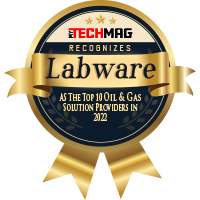
Based out of Silicon Valley, Atomiton is one of the first Industrial IoT platforms that has developed disruptive software technologies to improve the operations of Oil and Gas. Its Atomiton Stack (A-StackTM) is the only single-stack technology that connects sensors and equipment to drive predictive operations using artificial intelligence. Today, E&P operators strive to maximize their good productivity and increase efficiency of operations to manage costs, while minimizing health and environmental risk.
Midstream pipeline operators are searching for more intelligent means to manage and protect their extensive infrastructure. LNG producers and refineries are looking at how to increase production efficiency while reducing environmental footprint. EPC (Engineering, Procurement and Construction) and Oilfield Service companies are looking for digital solutions to improve project-on time and on-budget. However, across the industry, companies run into the same challenge over and over again: the lack of real-time visibility and predictive intelligence to inform operational decisions. A-Stack drives predictive O&G operations by ingesting and analyzing sensor, machine and system data at the edge, creating real-time visibility, making predictions, and taking actions at the pace of operations.
It offers a number of solutions that address specific problem domains such as equipment intelligence, pipeline integrity, energy optimization, distribution logistics, process optimization and intelligent wellhead. On A-Stack, any sensors, devices or systems can be integrated as data sources, thus removing data silos.
A-Stack uses real-time data streams to run software-defined assets and processes, that are models of autonomous virtual entities, representing the physical world. AI-based software analyzes and generates operational intelligence inline, at the speed of operations, to predict and optimize operations.
A-Stack gives users the ability to orchestrate and coordinate operational actions, and even run autonomously based on the desired outcome. A-Stack is communications protocols agnostic, and delivers inline, real-time analytics at the operational edge, with continuous operations optimization through artificial intelligence-based algorithms. Operators can choose to approve optimization or have the software orchestrate and control end devices, so operations can run autonomously. Atomiton solutions have been deployed in over 24 countries across four continents, impacting millions of lives.
In the case of a refining operation, steam was a critical resource in daily operations, yet operations lacked visibility of forecasted steam demand required to run processes, as well as knowledge of costs associated with operating different equipment and sourcing options. They had multiple steam sources, from internal equipment and external suppliers, with each requiring different startup times and different costs and production capabilities. Additionally, the impact of external factors such as rain or humidity reduced steam production.
Their goal was to gain operations visibility to optimize supply sources against demand while running necessary production processes and reducing their operational costs. By implementing Atomiton’s Steam Optimization solution, they were able to create digital models for the critical equipment and supply sources, analyze and predict steam demand against processes requirements, and leverage the AI software to optimize the steam sourcing dynamically, as requirements and conditions changed. Now refinery operations have the visibility they need to optimize steam supply, reduce their energy costs and also minimize environmental impact of excess steam production. With its disruptive platform, Atomiton continues to lead innovation by developing new solutions for the O&G industry. In the coming quarters, it is expected to release a few new solutions. One of them predicts structural weaknesses in pipeline infrastructure that lead to gas leaks, another is to optimize LNG production efficiency using dynamic analysis. With Atomiton, oil and gas companies can transform data into operational intelligence, use predictive insights to create operational efficiencies, and empower their front-line operations teams.








